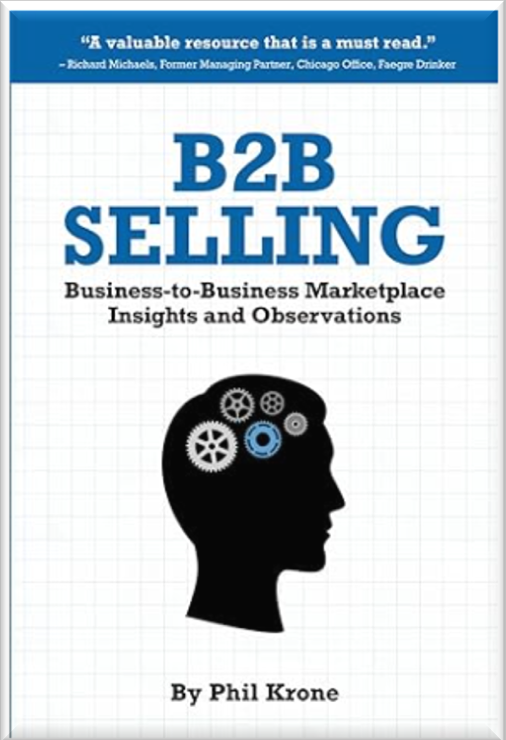As we got to know each other, she shared what had inspired her to start her company in the first place. When one of her sons died from a seizure, she was surprised—even appalled—at the lack of empathy the funeral home expressed to her and to the rest of her family. As a Black woman, she knew the problem wasn’t discrimination. She knew what that looked like, and besides, the funeral home was run by a Black family. She realized that they just didn’t seem to know how to express empathy. Her son’s ashes came to her with the death certificate and nothing more. Not even a letter thanking her and expressing their sorrow at her son’s death. There was absolutely no sympathy, just a transaction to bury her son.
Small Assignment, Big Impact
August 14, 2025
How our smallest assignment last year helped a start-up business grow and influenced an industry.
Last year after a talk I gave at the Small Business Expo on Business to Business Selling (B2B), a woman asked for my card because she wanted to meet to tell me about her business and learn more about mine. When we eventually got together she shared that her start-up company’s goal was to console consumers who had suffered the loss of a loved one directly, as she had. But my talk had inspired a new idea: assist funeral homes to improve their services by showing more empathy to their customers who were struggling as she was. I sensed that my talk gave her confidence that, despite the challenges, her business could succeed.
What I didn’t realize was that this small assignment for a start-up would eventually have such a big impact on her business as well as an industry.
She decided to start a company to honor her son and help other families receive the empathy his family had not experienced. The solution was a service called The Memory Box. The business would help funeral homes communicate the empathy she had so desperately needed but didn’t receive. And they would do it on a continuing basis over a significant amount of time but especially on meaningful dates—the deceased’s birthday, for example, or the anniversary of their death. She put together a series of gifts that would arrive on key dates to help the family see that their loved one was not forgotten. The first gift sent out from the funeral home to the family is a wooden box with the loved one’s initials on it. The box can be used to house items that recall meaningful moments from the deceased’s life.
Need Behind the Need
We often talk with our clients about not only meeting the apparent need of customers, but also meeting needs behind the needs. In this case the need behind the need for funeral homes is their inability to differentiate from competition.
She then used her FOCIS® developed sales process at an industry trade group meeting and she was “the hit of the show,” she told us. The prospects she talked with decided they would use The Memory Box to differentiate themselves from competitors and provide the program to
their customers without charge. The final value in the sales process was to help the funeral industry prospects to realize how poorly they have communicated empathy to their customers both at the time of service and on future anniversary dates. This was perhaps the smallest assignment we were given in 2024, but in many ways, it has had outsize value for our client, her customers, and the families that experienced loss.
The Five Levels of Marketing
Level One: Sales
To help businesses grow we apply our Five Levels of Marketing Model. Level One is Sales, and improving the sales process is fastest way to increase revenue in the short term. The Memory Box was operating on Level One. With our help, the company developed stronger consultative
selling skills and a custom sales process targeted for their product and their market. A key element of the consultative sales process is discovering the true needs of a prospect. The Memory Box’s key discovery was learning the need behind the need: funeral homes didn’t know how to differentiate from their competition. The Memory Box serves their market by meeting that need. Here’s overview of The Five Levels with additional tips on Level One—Sales.













